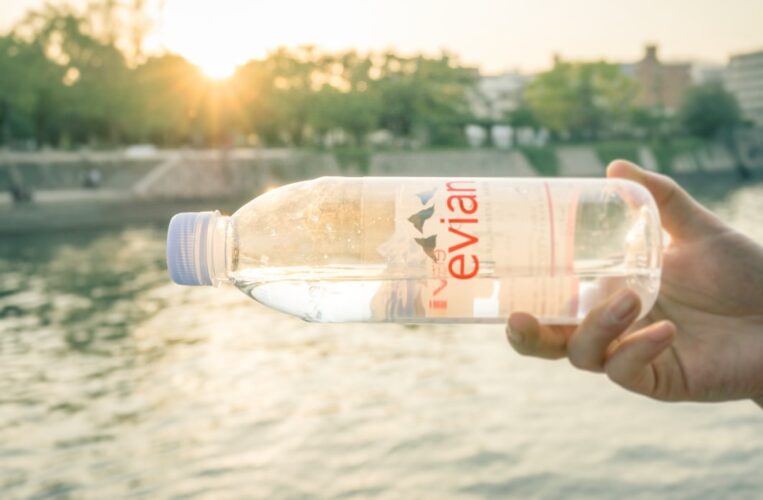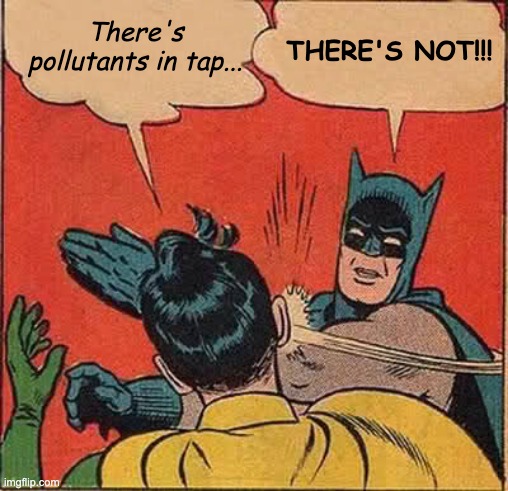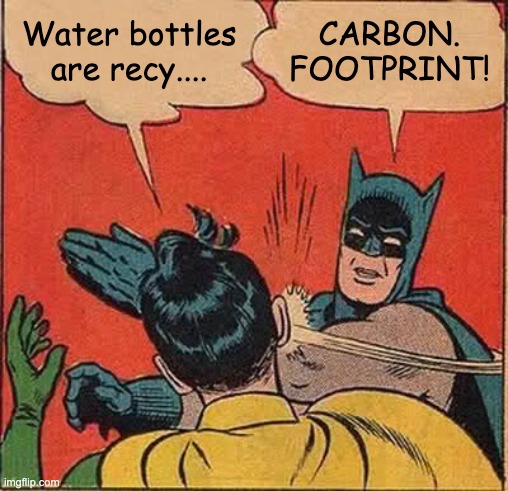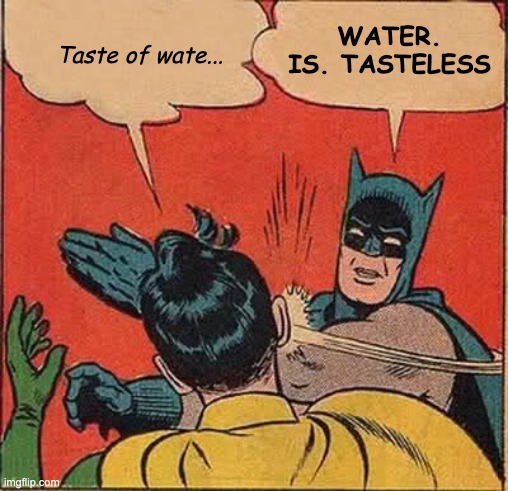
WTF is Wrong With: Bottled Water Obsession in Germany
Top Takeaways From This Post
Last updated on January 6th, 2023 at 02:49 pm
Germany has one of the highest regulated drinking water systems. Then WTF so many Germans buy bottled water each year as if their tap water secretes devil’s piss?
One of my biggest shocks, when I moved to Germany back in 2010, was Germany’s love for bottled water.
Although German tap water is ranked among the safest and best tasting in Europe, it’s common to see local families carrying packages of bottles of water out of the supermarkets all the time.
The acceptance of bottled water to so skin deep in German culture, that if you dare request ‘Leitungswasser bitte‘ at a restaurant, you’re guaranteed to get some serious side eyes from people around you.
Why is bottled water consumption a big problem?
Here are some of Germany’s bottled water consumption related statistics:
- In 2019, Germany was the second-largest consumer of bottled water per capita in the EU with 168 litres consumed per person. Italy takes the top spot. WTF, Italy???
- On average, each German consumes 210 single-use plastic bottles per year.
- According to the Deutsche Umwelthilfe (German Environmental Aid), around 2 million disposable plastic bottles are consumed every hour. That is more than 47 million per day, 17.4 billion plastic bottles per year. This amounts to 470,000 tonnes of waste.
- Germany is one of the top 10 nations leading the per capita CO2 emissions.
Then why do Germans drink packaged water instead of the perfectly safe to consume tap water?
Why isn’t there a green tax on bottled water in Germany?
Whatever happened to the good old German values of sustainability and environmentally friendliness?
Disclaimer: This page may include affiliate links. They do not cost you anything but I might earn a small income if you decide to use one of my recommended partners. This has no bearing on the price of the product or service. Thank you for your support to help keep this platform growing!
What do Germans say about bottled water?
Some Germans say it’s because of the minerals you get from bottled water, others say that it simply tastes better.
Let’s review some of the most common justifications for this odd consumption pattern in Germany and why they’re basically bullshit.
Myth 1: Tap water contains pollutants
German drinking water is among the best in the world. The legal requirements in Germany for drinking water quality are actually stricter than those for mineral water.
Chlorination of drinking water is very rare in Germany. Even if it is used, it is in very small quantities.
Drinking water in Germany is subjected to daily quality checks.
In Berlin, for example, water samples are taken and tested on a regular basis at 104 extraction points all over the city. Furthermore, its chemical composition is also checked on a daily basis.
In 2016, the German consumer organisation Stiftung Warentest conducted “Der grosse Wassercheck” and tested 31 mineral water brands along with tap water from 28 German cities.
The test results determined that the quality of the tapped water in several German cities is better than the quality of many expensive bottled water brands in Germany.
Myth 2: Mineral water is healthier than tap water
Believe it or not, I’ve been told by bottled water defenders ‘uh but German mineral water has healing properties.’ Mineral water is sometimes also advertised as ‘Heilwasser’ in Germany.
Stiftung Warentest cautioned that the term “mineral water” is used a bit too loosely by some manufacturers.
In their “Der grosse Wassercheck” half of the tested mineral waters didn’t contain a particularly high concentration of minerals.
The lowest concentration of minerals in one brand was found to be 57 milligrams per litre, while tap water in some German cities can contain more than 700 milligrams per litre. Only eight of the tested mineral waters contained more minerals than tested tap water samples.
Not all mineral water is rich in minerals. A bottled water manufacturer in Germany can advertise their products “with a high mineral content” if it contains the equivalent of/ more than 1,500 mg/l of minerals.
In 2017, the Chemical and Veterinary Investigation Office Münsterland-Emscher-Lippe had detected microplastics in a study of 34 mineral water. Although most of it came from the packaging material, the health effects of microplastic on human health were not conclusive.
Myth 3: Packaged water bottles are recycled in Germany
In the last 20 years, the share of recyclable bottles has drastically sunk from 72 per cent in 1997 to 42 per cent in 2017.
Single-use plastic bottles dominate packaging for non-alcoholic beverages. In fact, non-alcoholic drinks in reusable bottles are often hard to find in German grocery stores.
Below is a breakdown of how much carbon footprint/ CO2 emissions are generated by packaged water.
Single-use plastic water bottles (Einwegflaschen): Over its entire life cycle, a disposable plastic bottle causes twice as much CO2 compared to a reusable bottle.
Reusable bottles (Mehrwegflaschen): Reusable glass bottles are refilled around 50 times. Reusable plastic bottles manage at least 25 refills. Even for every reused bottle, the production of new disposable packaging, labels and the length of the transport routes also impact the carbon footprint.
Tap water in Germany: Tap water in Germany is extracted, treated and pumped through the pipes to the households, which gives a carbon footprint of 0.35g CO2 equivalents per litre.
Myth 4: Tap water doesn’t taste good.
Many people claim that tap water in Germany tastes so bad they need bottled carbonated water to feel satiated.
The taste and composition of tap water in Germany vary from town to town. However, the taste of water is greatly affected by the condition of water pipelines. If you are bothered by the taste of tap water in Germany, you should get your home’s pipelines checked for any irregularities.
There are also other sustainable and affordable ways to improve the taste of tap water in Germany.
- Water softeners
- Water filter systems that can attach to your water tap
- Water filter jars
- Soda machines to create your own carbonated water at home

Even more reasons to chuck bottled water out
The production of all packaging, the transport of the products from the source to the retailer and home, the recycling and disposal of the bottles all consume resources and energy. Here are some more reasons to switch to tap water in Germany.
Bottled water has a greater impact on the climate
About 17.4 billion plastic bottles are consumed in Germany per year. This amounts to 470,000 tonnes of waste.
Imported bottled water in particular causes up to 1000 times more environmental pollution than tap water. Unfortunately, the amount of imported bottled water in Germany is enormous. In 2014. 1,142.8 million litres of mineral water was imported in Germany.
Bottled water has longer transport routes
Even with reusable water bottles, the length of the transport routes also impacts the carbon footprint.
Transporting a litre bottle of water produces 1400 times more CO2 than transporting a litre of tap water.
Single-use plastic water bottles (Einwegflaschen) are transported for an average of 450 kilometres. Reusable bottles (Mehrwegflaschen) are transported for an average of 260 kilometres.
Bottled water costs more than tap water
Tap water costs an average of 0.25 cents. By comparison, water at discount stores costs around 13 cents per litre.
Tap water in Germany is free of toxins, needs no packaging, leaves no waste, and does not have to be driven hundreds of kilometres – means you have a perfect option to hydrate yourself without damaging the environment.
If you really really can’t do without mineral/ carbonated water you can buy regionally packaged water in reusable bottles.
Your turn now!
Do you buy bottled water in Germany or do find it an odd custom about Germans? How did you deal with the water hardness in your new home? Let us know in the comments below.












3 Comments
Jeff S
I just want to know why _all_ bottled water is mineral water, chock-full of nasty tasting sulfur…and/or carbonated.
I’ve taken to filling a coke bottle out of the tap and sticking it in the hotel fridge (I’ve known about German issues with ice for decades) to cool before putting it in an insulated flask.
Which leaves me drinking Spezi at the restaurants, which is bad for the diabetes…
Bob
I love how the getman water tastes.
Bottled.water i find to dry does not tastebgreat and is no where near as refreshing.
When at work.i have no choice but bkttled water, when we use it in the kettle the amount of kalk it leaves behind compared to tap water is incredible.
If the german communities can change their way of thinking when it comes to water the amount if money that could be saved is immense
Yamini
I have no issues with the taste of water here. Sprudelwasser on the other hand does nothing for my thirst haha